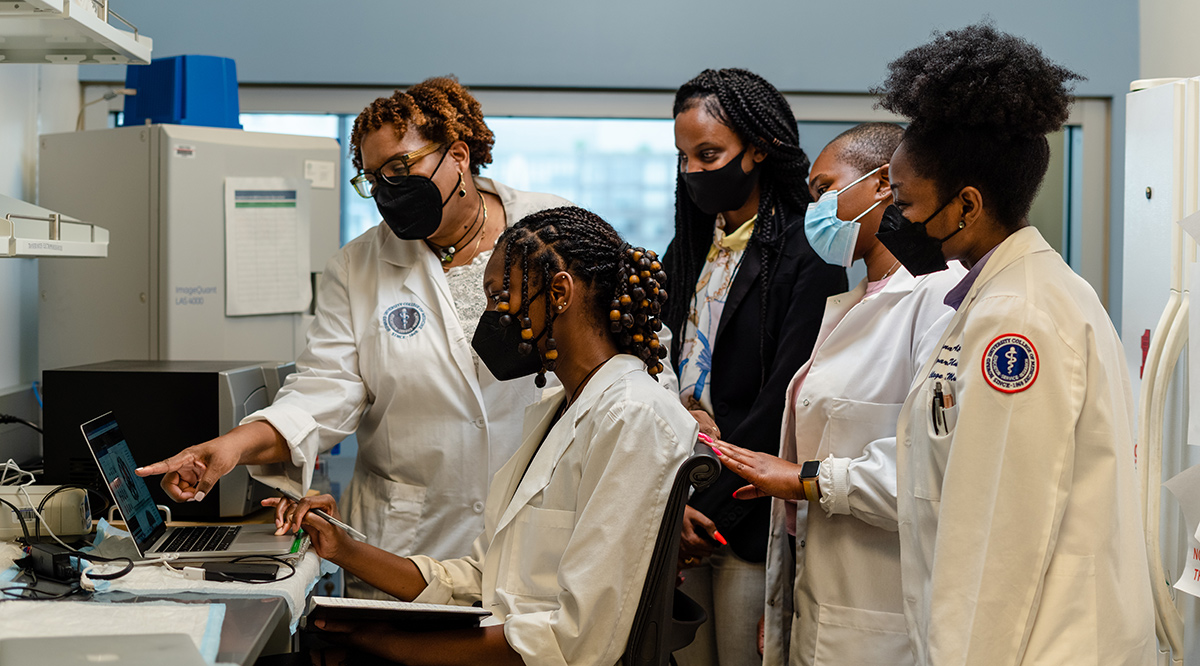The Future of Personalized Medicine: Bridging the Gap in Health Disparities
In the rapidly advancing realm of personalized medicine, where treatments are tailored to individual genetic and lifestyle profiles, a critical question looms: who will truly benefit from these innovations? While personalized medicine has made significant strides since the introduction of BRCA1/2 genetic screenings in the 1990s, disparities in access continue to cast a long shadow over these medical breakthroughs.

The Association of American Medical Colleges (AAMC) reports that while breast cancer mortality has decreased, Black women still face a 40% higher death rate compared to their White counterparts. This inequity is partly due to the fact that Black women are less frequently offered genetic screenings that could potentially save their lives.
Moreover, the NIH’s All of Us research program is building one of the largest and most diverse health databases in the world. This initiative seeks to understand how various factors such as environment and socioeconomic status influence health, with the ultimate goal of making precision medicine accessible to all communities.
Rick Kittles, PhD, of Morehouse School of Medicine, emphasizes that academic medical centers must commit to resolving inequities within their communities. This includes fostering trust and building relationships with underrepresented groups to ensure that the advancements in personalized medicine are inclusive and beneficial to all.
As personalized medicine continues to develop, the question remains: will it be a beacon of hope for all, or a gateway to new health disparities?

The Association of American Medical Colleges (AAMC) reports that while breast cancer mortality has decreased, Black women still face a 40% higher death rate compared to their White counterparts. This inequity is partly due to the fact that Black women are less frequently offered genetic screenings that could potentially save their lives.
Bridging the Gap
Efforts to rectify these disparities are underway. Initiatives like the Chan Zuckerberg Initiative’s Accelerate Precision Health program aim to expand research at historically Black colleges and universities (HBCUs). These programs focus on increasing the representation of diverse genetic profiles in medical research.Moreover, the NIH’s All of Us research program is building one of the largest and most diverse health databases in the world. This initiative seeks to understand how various factors such as environment and socioeconomic status influence health, with the ultimate goal of making precision medicine accessible to all communities.
Challenges and Responsibilities
Despite these promising efforts, systemic barriers remain. The lack of diverse representation in genetic studies, high costs of genetic testing, and limited outreach to marginalized communities hinder the equitable distribution of personalized medicine’s benefits. As the field continues to evolve, the urgency to address these challenges grows.Rick Kittles, PhD, of Morehouse School of Medicine, emphasizes that academic medical centers must commit to resolving inequities within their communities. This includes fostering trust and building relationships with underrepresented groups to ensure that the advancements in personalized medicine are inclusive and beneficial to all.
As personalized medicine continues to develop, the question remains: will it be a beacon of hope for all, or a gateway to new health disparities?
More Articles
Getting licensed or staying ahead in your career can be a journey—but it doesn’t have to be overwhelming. Grab your favorite coffee or tea, take a moment to relax, and browse through our articles. Whether you’re just starting out or renewing your expertise, we’ve got tips, insights, and advice to keep you moving forward. Here’s to your success—one sip and one step at a time!
2407, 2023
Rhode Island
Forgive the Cyber Dust
We will return shortly after upgrades are complete
2407, 2023
Pennsylvania
Forgive the Cyber Dust
We will return shortly after upgrades are complete
2407, 2023
Oregon
Forgive the Cyber Dust
We will return shortly after upgrades are complete
2407, 2023
Oklahoma
Forgive the Cyber Dust
We will return shortly after upgrades are complete
2407, 2023
Ohio
Forgive the Cyber Dust
We will return shortly after upgrades are complete
2407, 2023
North Dakota
Forgive the Cyber Dust
We will return shortly after upgrades are complete
2407, 2023
North Carolina
Forgive the Cyber Dust
We will return shortly after upgrades are complete
2407, 2023
New York
Forgive the Cyber Dust
We will return shortly after upgrades are complete
2407, 2023
New Mexico
Forgive the Cyber Dust
We will return shortly after upgrades are complete
2407, 2023
New Jersey
Forgive the Cyber Dust
We will return shortly after upgrades are complete
2407, 2023
New Hampshire
Forgive the Cyber Dust
We will return shortly after upgrades are complete
2407, 2023
Nevada
Forgive the Cyber Dust
We will return shortly after upgrades are complete
2407, 2023
Nebraska
Forgive the Cyber Dust
We will return shortly after upgrades are complete
2407, 2023
Montana
Forgive the Cyber Dust
We will return shortly after upgrades are complete
2407, 2023
Missouri
Forgive the Cyber Dust
We will return shortly after upgrades are complete
2407, 2023
Mississippi
Forgive the Cyber Dust
We will return shortly after upgrades are complete
2407, 2023
Minnesota
Forgive the Cyber Dust
We will return shortly after upgrades are complete
2407, 2023
Michigan
Forgive the Cyber Dust
We will return shortly after upgrades are complete
2407, 2023
Massachusetts
Forgive the Cyber Dust
We will return shortly after upgrades are complete
2407, 2023
Maryland
Forgive the Cyber Dust
We will return shortly after upgrades are complete
2407, 2023
Maine
Forgive the Cyber Dust
We will return shortly after upgrades are complete
2407, 2023
Louisiana
Forgive the Cyber Dust
We will return shortly after upgrades are complete
2407, 2023
Kentucky
Forgive the Cyber Dust
We will return shortly after upgrades are complete
2407, 2023
Kansas
Forgive the Cyber Dust
We will return shortly after upgrades are complete
2407, 2023








